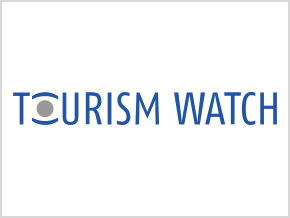By the end of April the Dominican Republic started its vaccine campaign, which prioritises tourism workers and their families for vaccination doses against COVID-19. With this strategy, the Caribbean island is clearly acting in favour of its economy. The big hotel resorts have already turned their foyers into vaccination centres - and are most likely the ones benefitting most from this competitive advantage of being vaccinated.
Vaccinating against the economic crash
Hospitality was one of the most important pillars of the Dominican economy before the pandemic. According to the Central Bank, it contributed 7.6% of GDP, claimed 36% of agricultural production and was responsible for 33.9% of foreign exchange coming into the country before the virus spread. But since the disease outbreak, hotel occupancy rates have dropped significantly, with more than half a million workers in suspension. In order to stem an economic crash and to make the countries attractive again to tourists as quickly as possible, the government called on employees in the tourism sector to get vaccinated already in spring. This was a necessary step for saving the economy, says Alexis Moisés, President of FUNDATUR (La Fundación de Apoyo al Desarrollo y Fomento del Turismo): "We were the first to publicly recommend to the national government the prioritisation of vaccines for tourism staff against COVID-19. This will reactivate tourism activities so that formal and informal workers will gradually regain their sources of income."
Wrong priorities?
The initiative is the start of a campaign aiming to vaccinate about 2,000 people per day. And the strategy is already reaping rewards, The Caribbean Island has one of the highest vaccination coverage of its population against COVID-19 in Latin America. Tourism is benefiting from this: "The country's economy is well on its way to regaining the growth rate it had before the pandemic. We expect that by the end of 2021, the Dominican Republic will once again position itself as a reliable, leading tourist destination in the Caribbean," says Moisés.
However, like any other country, the Dominican Republic has only limited vaccine doses available. Therefore, the government has prioritized certain risk groups - but without a strategy on how to monitor the access to vaccines. The prioritisation only exists on paper, says Matias Bosch, Professor for Social Sciences at the University of Action Pro-Education and Culture (UNAPEC) in Santo Domingo: "In the tourist strongholds of the Dominican Republic, tourism employees were urged early on to get vaccinated. This put them in the same priority group as the military, for example. However, no mechanisms have been designed and implemented to ensure that vulnerable groups, for example by occupation, age, or health status, are vaccinated. So, we don't know which groups have already been vaccinated and - even worse - who has been left out. This is because, apart from the total number of doses administered, the government has not published any information on the criteria used to access vaccination. This is a big problem." Even though the tourism industry in the Dominican Republic seems to be recovering well from the pandemic thanks to the vaccination prioritisation of its workers, it is unclear how it will be ensured that not only large hotel chains and resorts but also small tourism operators, seasonal and informal workers will have access to the vaccination.
Good prospects for mass tourism
By inoculating the tourism industry, the Dominican Republic also wants to create a competitive advantage over other destinations. And there seems to be a winning team: "The all-inclusive model can implement the new hygiene and distance rules particularly well and thus enable corona-compliant travel. Tourists basically don’t have to leave resorts with own restaurants and leisure facilities at all. This is a huge advantage when it comes to avoiding the spread of infections - and a major reason why the arrival of foreign passengers by air has continued to increase from January to May this year," Moisés points out. Giselle Cedeño of ALBA SUD takes a critical view of this development: "The dependence on the international market and mass tourism is obvious. Nevertheless, the measures taken by the government and the private sector were aimed at recapturing precisely this market." This strengthens a tourism model that is not resilient to crises at all and thus increases the vulnerability of the Dominican economy in the long run. Though the occupancy rate is on the rise again, it is not enough to re-hire employees on a permanent basis. In order to meet the demand for staff, especially on the busy weekends, many companies have decided to use temporary employment agencies. "Before the pandemic, temporary workers were hired by hotels for big events. Now the demand for their services has risen sharply, for example in housekeeping, kitchen, laundry and especially in the restaurants. It is very convenient for companies. They don't have the same obligations as for a permanent staff. It's cheaper because you don't have to pay for health insurance, transport or accommodation," says Cedeño.
Prioritisation or precarisation?
At the moment, it looks as if it is mainly the big hotels with all-inclusive models that are benefiting from the government measures, but they are increasingly outsourcing their work instead of passing the benefits to their employees. "The pandemic has already led to a precarisation of the tourism labour market. About 150,000 people have lost their jobs in the hospitality industry. In addition, many people are in what is called 'suspension' - a status introduced during the pandemic. Their contracts are not terminated even though they cannot work, but the employer does not have to pay them either. Employees still actively working have a much higher workload with massive overtime due to the hygiene measures," says Cedeño. Without a doubt, the decision to vaccinate tourist staff at an early stage seems to have successfully led the Dominican Republic's tourism industry through the crisis. However, time will tell who was left behind in the end.



